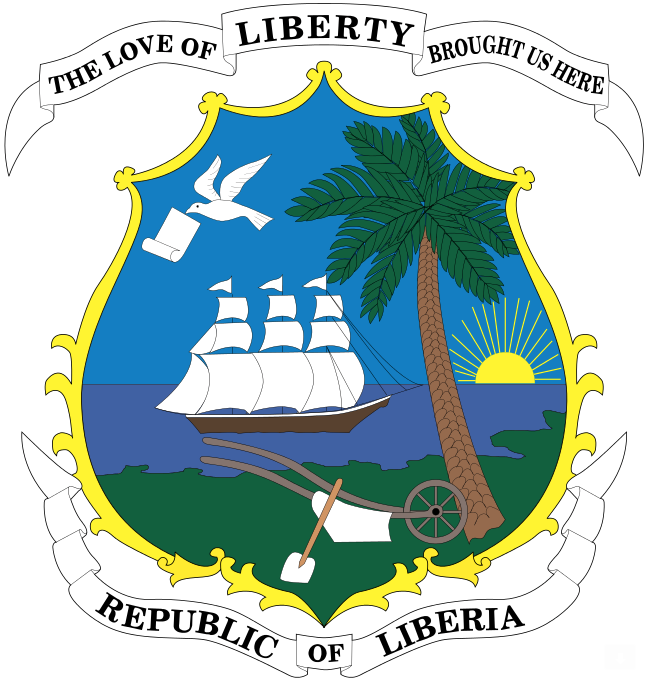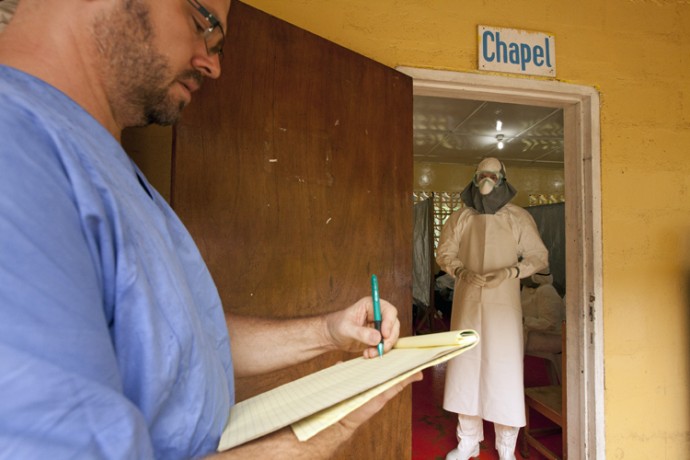Does it matter that the great tide of Christian perfectionism bursting forth in early 19th century America included a touch of ethnic/racial cleansing? Right-wing ranters like Limbaugh say that it does because they worry that liberal guilt regarding Liberia might cause us to foolishly admit more of “them”—the Ebola- contaminated ones—to our homeland hospitals.
I say that it matters because, as a practical matter, our shared history with Liberia ought to make it possible for us to be more strategically helpful in the Ebola crisis rather than pretend that Liberia is a place we know nothing about. To engage with an aggressive disease-containment plan in Liberia should be more a matter of realism than guilt, although a certain amount of guilt is warranted in this case.
Liberia owes its existence to Christian perfectionism gone badly wrong. It owes its existence and the primary arc of its history to an ambitious enterprise called the American Colonization Society.
A pivotal early figure was an energetic Congregationalist named Samuel John Mills. Mills was a prime mover in the creation of the American Bible Society in 1816 and also in the formation of the Colonization Society the following year. In 1818 Mills made sail for Africa to spy out the territory for the resettlement of Black people.

The idea for the Colonization Society grew out of white panic. In the early decades of the 19th century, there were simply too many free people of color running around for Northern whites, including some whites who loathed the “peculiar institution,” to feel sufficiently comfortable.
Their response was to organize a massive project of reverse missionizing: rather than try to convert Africans in Africa, in this case we would simply ship already-converted African-Americans back to Africa and wish them the best of luck.
The work of the Colonization Society entailed what we now call ethnic cleansing, which the less high-minded among its founders understood full well. The Rev. Robert Finley, a Southern Presbyterian associate of Mills, made the case for Black removal in a letter to a friend in 1816:”Could they be sent back to Africa, a three-fold benefit would arise: we should be cleared of them, we should send to Africa a population partially civilized and christianized for its benefit, and our blacks themselves would be put in a better position.”
Chief Justice John Marshall wrote: “The removal of our coloured population is, I think, a common object. The whole union would be strengthened by it and removed from a danger whose extent can scarcely be estimated.” (Free blacks weren’t the only danger: during the 1820s a few New York-based colonizationists associated with Columbia College also supported the christianizing and removal of Jews to a vast tract of land that had been donated for the purpose in Western New York State.)
Apart from some fastidious Yankees, most supporters of African colonization had few misgivings about the rightness of chattel slavery. Their ranks numbered legendary compromiser Henry Clay of Kentucky and planter-statesmen John Randolph and Richard Bland Lee of Virginia.
Liberia’s capital, Monrovia, was so named in 1824 to honor another slavery-supporting Southerner who happened to occupy the White House at the time: President James Monroe.
And while some early proponents of colonization, like William Lloyd Garrison, would later become Abolitionists, the majority—who were well-entrenched within America’s best colleges, as Craig Wilder notes in his book Ebony and Ivy—clashed openly with abolitionists and “race mixers.” By the mid-1830s the ACS had established active chapters at two-thirds of the colleges and universities in the free states, and their quarrels with the abolitionists were no longer polite and academic. The ACS types took up mob violence against African American schools and churches and raided antislavery institutions. In Connecticut they blocked the opening of a black college (the first of its kind) in New Haven, and they persecuted Prudence Crandall’s school for African American girls and women in Canterbury, putting Crandall on trial and physically destroying her school.
The Colonization Society’s official name was “The Society for the Colonization of Free People of Color in America.” In the end the people who were transported to Liberia were English-speaking Protestant Christians who promptly recreated a Little America on Africa’s Atlantic coast.
The “Americo-Liberians,” as they were called, formed their very own domination society, made in the image of a stratified United States. Although they never numbered more than five percent of the country’s population, the Americo-Liberians ruled over the indigenous people (with occasional help from the U.S. Navy) for an astonishing 133 years—1847 to 1980. It was only the Samuel Doe-instigated bloody civil wars that finally toppled Little America. The catastrophic civil wars are what in turn left Liberia a profoundly broken place with a barely functioning economy and essentially no public health infrastructure.
You could say, as President Lincoln eventually did, that all the wealth piled up here on these shores on account of “drops of blood drawn by the lash” creates a moral obligation to those who were thus lashed and chained from 1619 onward. And not just to those who remained under the lash until the advent of at least a kind of freedom but also to those who were sent back to Africa via colonization.
Recognition of any such moral obligation is unlikely, of course. White Americans are notoriously uninterested in history, and we are especially uninterested in uncovering new threads of a white supremacy narrative that we still manage to suppress quite effectively. Ignoring corpses under the floorboards is the American way. But it would good at least if we could see once in a while how our sanctimonious fumblings on the global stage are tied to unresolved issues relating to America’s Original Sin.


